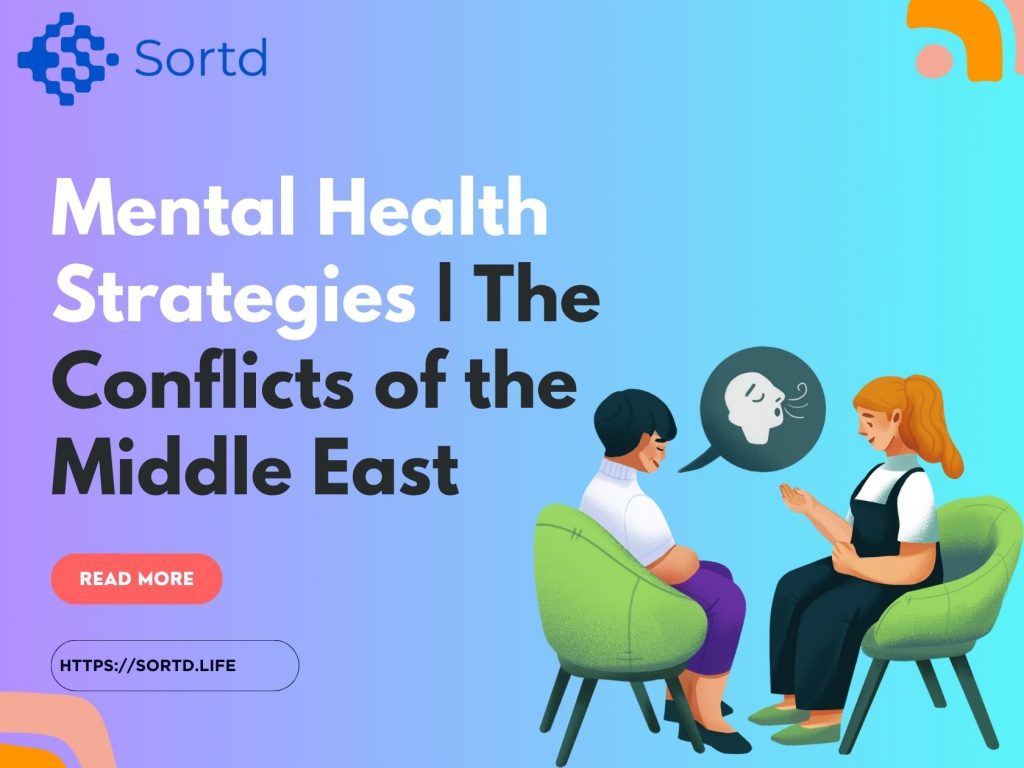
Living during geopolitical conflicts can have a profound impact on mental well-being. In this blog post, we explore the unique challenges faced by individuals in the Middle East and offer practical coping strategies for maintaining mental health during times of uncertainty and tension.
1. Understanding the Impact
Geopolitical conflicts can induce stress, anxiety, and trauma. Delve into the psychological effects of living in regions marked by political unrest and learn how persistent uncertainty can affect mental health.
2. Seeking Support
Discover the importance of seeking support during challenging times. From connecting with friends and family to exploring professional mental health services, this section guides on building a robust support network.
3. Mindfulness and Self-Care Techniques
Explore mindfulness and self-care practices specifically tailored to help individuals cope with the emotional toll of living in conflict zones. From meditation to stress-relief exercises, learn practical strategies for promoting mental well-being.
4. Online Mental Health Resources
In an era of digital connectivity, online mental health therapists play a crucial role. Uncover valuable platforms and services that offer support, information, and counseling for those impacted by conflicts in the Middle East.
5. Cultural and Community Resources:
Connect with cultural and community resources that understand the unique challenges faced by individuals in the Middle East. Learn about organizations providing mental health services in UK and fostering a sense of community during difficult times.
6. Limit News Intake
Continuous exposure to distressing news can take a toll on your mental health. Consider these steps:
- Media Diet:
Put yourself on a media diet. Limit news consumption and social media exposure. Balance awareness with self-care.
- Shield Children:
Shield children from graphic content. Explain events in age-appropriate ways and encourage open conversations.
7. Tune into Your Feelings
Acknowledge your emotions. It’s normal to feel anxiety, fear, or sadness. Allow yourself to process these feelings without judgment.
8. Build Your Stress-Busting Toolkit
- Mindfulness:
Practice mindfulness techniques. Deep breathing, meditation, and grounding exercises can help manage stress.
- Physical Activity:
Engage in regular physical activity. Exercise releases endorphins and reduces tension.
- Creative Outlets:
Express yourself through art, writing, or music. Creative outlets provide relief and distraction.
9. Tap into the Goodness of Life
Amidst conflict, find moments of joy and gratitude. Connect with loved ones, appreciate nature, and engage in hobbies.
10. Seek Professional Help
- Therapy:
Consider therapy or counseling. Talking to a professional can provide coping strategies and emotional support.
- Support Organizations:
Reach out to organizations like Médecins Sans Frontières (MSF), Humanity Crew, or the United Nations High Commissioner for Refugees (UNHCR). They offer vital mental health support in the region.
Conclusion:
In the face of adversity, prioritizing mental health becomes a form of resilience. While conflicts persist, the power to safeguard one’s well-being lies in seeking support, practicing mindfulness, and leveraging available resources.
Remember, your mental health matters, and it is okay to seek help. By fostering a culture of care and understanding, individuals can navigate the impact of Middle East conflicts on their mental health with strength and resilience.
